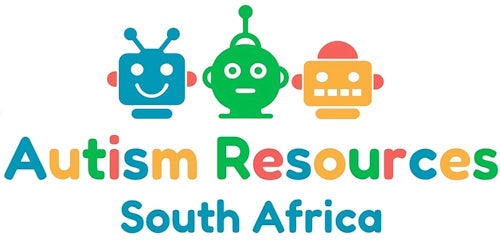Meet Orchid, the Autism Support Dog
Jaco de GoedeWhen the Guide Dogs Association of South Africa announced last year that they are reopening applications for Autism support dogs, our Malaika Rose begged us to apply. We went through the application process, followed by a series of interviews and a home visit by the Guide Dog Association to identify her needs and to determine which dog will suit her best.
About 6 months later we received the news that she has been approved and the ideal dog for her has been identified, a beautiful golden retriever named Orchid.

Orchid completed her 2 years of training to be a service dog at the beginning of this year and Malaika Rose’s training started in March. First there was about a week of online training and when Orchid arrived, it was followed by 2 weeks of in-person training. Then we had to start convincing the school that Orchid may accompany her to class every day.
What makes Malaika Rose’s situation unique in terms of having a service dog, is the fact that she is verbal and has some level of executive functioning. Normally, the Guide Dog Association would require a separate handler for the service dog, either a parent or carer, to be trained to manage the service dog and accompany the child with the dog. But as Malaika Rose was able to complete the online and in-person training herself, she was allowed to act as Orchid’s handler.
So, since the start of the second school term, Orchid has accompanied Malaika Rose to school every day, went with her to restaurants, outings and even play dates with friends. It takes a bit of effort beforehand – informing shopping center management before we go shopping, arranging with a restaurant before confirming a booking, etc. But now our daughter who never wanted to leave the house and hated going to school suddenly enjoys going out. She loves showing of her service dog and whenever it all gets too much for her, she can change her focus to be comforted by Orchid.

What is a Autism Support Dog?
The Autism support dogs provided by the SA Guide Dogs Association are classified as service dogs, not emotional support dogs, which means that they fall under the jurisdiction of the Promotion of Equality and Prevention of Unfair Discrimination Act.
Autism support dogs act as constant companions to children with autism to help them improve social interactions and relationships, expand verbal and nonverbal communication, teach life skills, increase interest in activities and decrease stress within the family.
Having an Autism Service Dog can also increase the safety and security of an autistic child. When needed, the child’s parent holds the dog’s leash while the child is physically tethered to the dog via a safety harness. This prevents the child from wandering off. An Autism support dog can improve the child’s ability to participate in education, social and leisure activities because the canine may reduce the stress associated with these situations.
The benefits of having an Autism support dog are different for every child, depending on his or her needs and abilities.
Some benefits of Autism Service Dogs include:
- Increased safety for the child (prevents child from wandering of)
- Encouraged social interaction
- Enhanced responsibility skills for child
- Reduced stress and anxiety
- Supported daily living skills
- Greater quality of life for families by spending more time in the community and participating in family activities
You can read get more information from the SA Guide Dogs Association here.
How does it work?
There are about 70 Autism support dogs active in South Africa right now. The requirement from the SA Guide Dogs Association is that applications must be for children aged between 5 -12 who have been diagnosed with Autism by a qualified medical practitioner. Applications are closed at the moment, but when it opened last year, they did not receive many applications. After that, interest peaked again and they have received multiple inquiries.
Your Autism support dog stays the “property” of the SA Guide Dogs Association. Once you service dog has been assigned and the training is complete, they will do regular home inspections to ensure that the dog is healthy and cared for, normally annual. In addition, we need to complete a monthly feedback report on the dog’s care, weight and experiences.
Our Experience
Since Orchid came into our lives, we can definitely see a big difference in Malakai Rose’s mental state. The biggest impacts we have seen are:
- Emotional regulation: She has been able to manage meltdowns better and recover from them easier.
- Executive functioning: Maybe it is the fact that she has to care for Orchid, or the fact that Orchid has a set routine, but there is a big difference in her executive functioning - she now even baths most days.
- Social interaction: Having Orchid as a conversation starter made life much easier in social situations. Her confidence to interact with others has grown as well and going out has become easier.

To be honest, I was quite skeptical about the idea of a Autism support dog initially. But, after seeing the impact Orchid is making on Malaika Rose, I can definitely recommend this.
Please support the SA Guide Dogs Association with their annual 2022 Walkathon this week - they provide Autism support dogs at almost no cost, and are completely dependent on our support.
